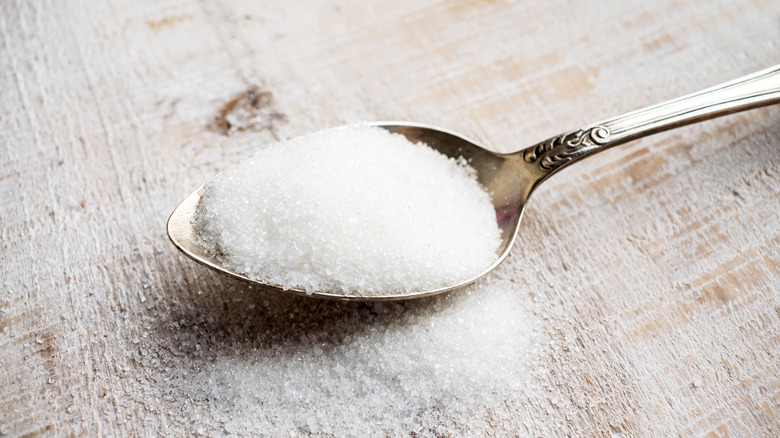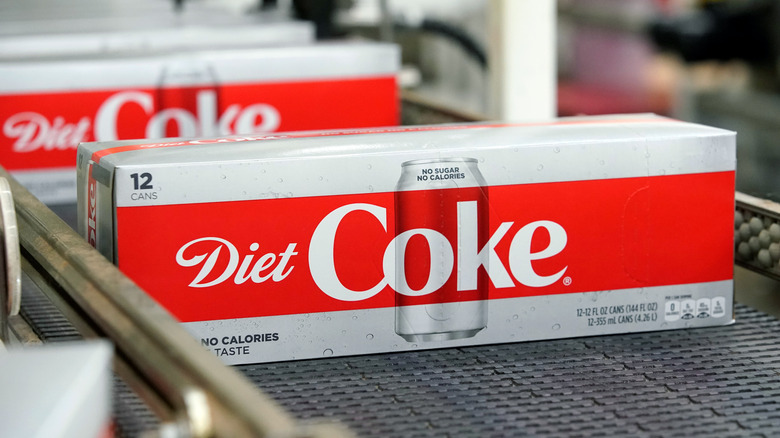Is Aspartame Actually Bad For You?
There are few food products that have stirred up as much controversy as artificial sweeteners, including aspartame. First discovered in 1965 by chemist James Schlatter, aspartame was approved by the FDA for use in certain foods in 1981, and has expanded its reach into the worldwide food supply ever since (via Aspartame). Today, it is commonly used in diet sodas and chewing gum, as well as numerous other "diet" foods including yogurts, frozen desserts, and reduced-calorie fruit juices (via Healthline).
Aspartame is a chemical compound made up of two naturally-occurring amino acids, aspartic acid and phenylalanine. It is sold under the brand names NutraSweet and Equal, and has been approved for use by plenty of heavy-hitting national and international organizations, including the American Heart Association, the World Health Organization, and the European Food Safety Authority. Hundreds of studies have evaluated the safety profile of aspartame, and although some of the research has produced mixed results, there has not been enough proof of harm to prompt a serious re-examination of aspartame by the regulating agencies.
Aspartame may not help you shed pounds
Nonetheless, recent research supports the view that the benefit of aspartame, as either a weight-loss tool or a tool for diabetes management, is far from settled science. One study, led by Meghan Azad, assistant professor in pediatrics and child health at University of Manitoba in Canada, studied more than 3,000 pregnant women and their babies. The mothers who reported consuming more artificial sweeteners, including aspartame, were twice as likely to have babies that were overweight or obese at one year old (via TIME).
Other studies using rodents have also found that artificial sweeteners actually contributed to weight gain, not loss, in animals. One such study, led by Dr. Richard Hodin from the Massachusetts General Hospital Department of Surgery, found that the problem lies in the phenylalanine part of aspartame, which inhibits a gut enzyme called intestinal alkaline phosphatase (IAP) that has been shown to prevent metabolic syndrome in mice (via Medical News Today). Hodin explains to Medical News Today, "People do not really understand why these artificial sweeteners don't work. There has been some evidence that they actually can make you more hungry and may be associated with increased calorie consumption. Our findings regarding aspartame's inhibition of IAP may help explain why the use of aspartame is counterproductive."


